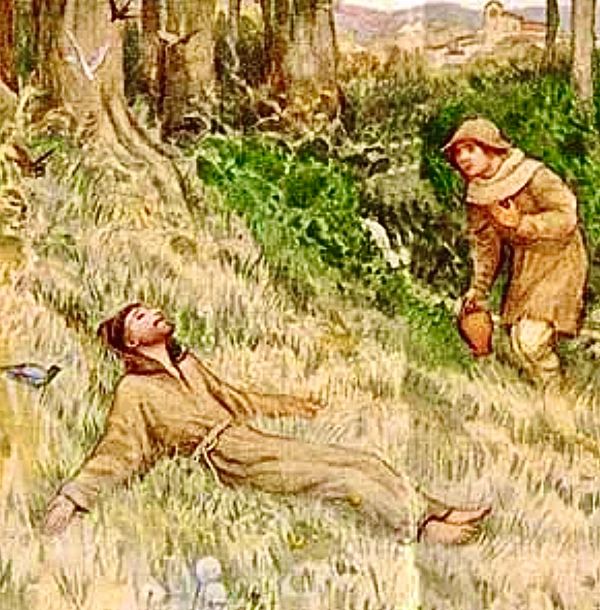In today's Gospel passage Jesus affirms his intimate relationship with the Father, highlighting the gift of such greatness that has been transmitted.
Francis had a relationship of special intimacy with the Lord.
The Life received in contemplation, in Union with God, became power poured out on his neighbour in various forms.
The energy humbly received in prayer was synonymous with unitive life, which redeems and transforms.
The Sources offer us the possibility of entering the paths of this special relationship, proper to Christ and transmitted, by Grace, to his brothers.
Browsing through the Franciscan documents we read:
"And the man of God, remaining all alone and in peace, filled the woods with groans, sprinkled the earth with tears, beat his breast and, as if he had found a more intimate sanctuary, talked with his Lord.
There he answered the Judge, there he pleaded with the Father, there he conversed with the Friend.
There also, from the brothers who piously observed him, he was heard to appeal with cries and groans to the divine Goodness on behalf of sinners: to cry, even aloud, the passion of the Lord, as if he had it before his eyes.
There, as he prayed at night, he was seen with his hands outstretched in the form of a cross, lifted up from the ground with his whole body and surrounded by a luminous cloud: marvellous light spread around his body, which wonderfully testified to the light shining in his spirit.
There, moreover, as sure evidence testifies, the hidden mysteries of divine wisdom were revealed to him, which, however, he did not divulge to the outside world, except to the extent that the charity of Christ compelled him to do so and the usefulness of his neighbour demanded it [...].
When he returned from his prayers, which almost transformed him into another man, he took the greatest care to behave in uniformity with the others, lest the wind of applause, because of what he let out, deprive him of the interior reward" (FF 1180 - Major Legend).
To his brothers he recommended above all else the intimate relationship with the Father, as sons who receive every gift of life from Him and with whom they work in harmony.
In fact, the Sources illustrate:
"At that time the brothers insistently asked him to teach them to pray [...] And he answered:
"When you pray, say: Our Father!" and: "We adore you, O Christ, in all your churches that are in the world and we bless you, because by your holy cross you have redeemed the world"" (FF 399).
Their intimate union with the Father made them sons in the Son and, just as Jesus did what he saw the Father do, so the brothers in the school of the Son worked, following the example of Francis.
Listening to the Word and believing in Jesus they became bearers of life, animated by the Poverello.
«The Son can do nothing of himself except what he sees the Father doing; for those things which he does, these the Son also does» (Jn 5:19).
Wednesday 4th wk. in Lent (Jn 5:17-30)












